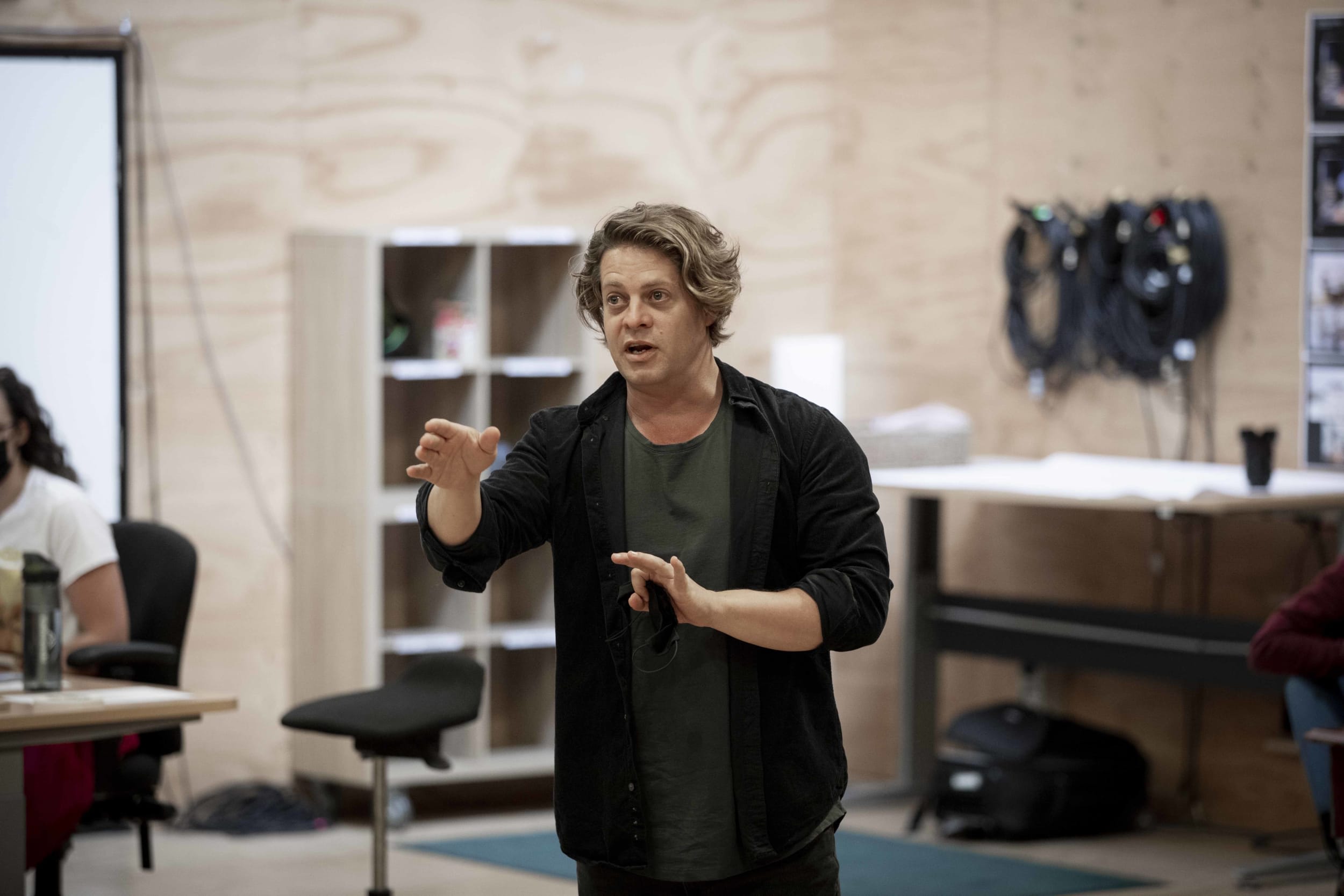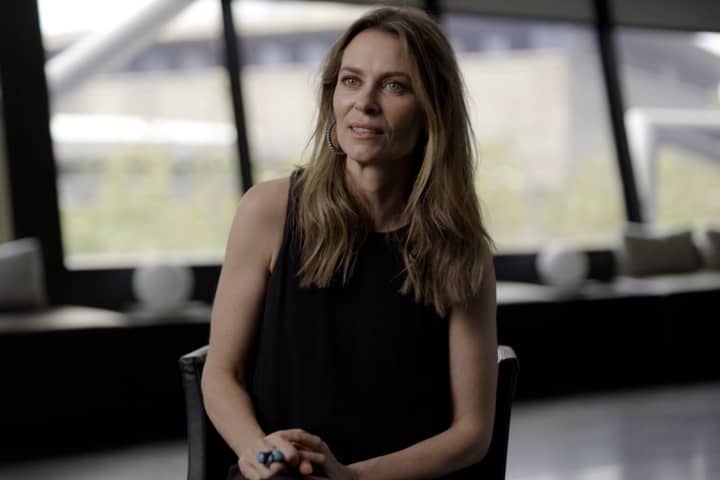Admissions is a play that asks its audience to question just how far they are willing to go to see the change they want in the world – and isn’t afraid to confront, shock and challenge in order to do so.
Joshua Harmon is a consciously provocative writer. He seems to borrow from some of the earliest traditions of theatre, the ancient Greek plays, in his use of argument and counter-argument. Like a great debate in which the parties argue simply for the joy of arguing, his plays are borne from looking at a single issue from as many perspectives as possible. Neat answers are beside the point. The point is the questioning itself. And the questions that result from those questions.
He seems to understand that just because there may be no answer doesn’t mean that the question shouldn’t be asked.
So it’s perhaps no surprise that Admissions is a consciously provocative play. Ostensibly a black comedy about white privilege, it’s pretty blunt in its attack. However, it is not provocative simply for shock-value's sake. Its subject matter is inherently contentious. It holds a mirror up to some surprising and unflattering truths. It’s a play that is knowingly by the left, about the left, for the left. Harmon knows his audience, and he takes certain liberties with his assumptions about that audience. He knows that, generally speaking, he is preaching to the converted. He assumes that the majority of his audience is of a like-mind, taking as a given the fact that we are all in agreement that white privilege exists. And that in order to combat this unfair privilege affirmative action is needed, in order to address existing power structures and correct the imbalances of equality and equity.
Harmon assumes that we all understand and appreciate this. At least on the macro level. However, it is on the micro level that Harmon goes for the jugular. His play asks what are any of us truly willing to sacrifice in favour of our political and ideological beliefs?

Director Gary Abrahams. Photo: Charlie Kinross
The play acknowledges that there is an inherent hypocrisy at work in our society when it is still predominantly white people who maintain positions of power and get to make all the rules. The play shines a spotlight on the conundrum that exists by white people sitting at the head of the proverbial table with the earnest intention of correcting existing faults, when it is the very people they are fighting for who ought to have the chance to sit in their seat.
One of the play’s masterstrokes is, uncomfortably, giving a cast of white characters the platform to have this argument. It’s a brilliant conceit that is at the same time achingly hypocritical. It visually places in front of the audience the very issues the play discusses. It will undoubtedly rub many people up the wrong way. Many people will ask, ‘Do we really need to be giving white voices yet another platform to discuss issues that deeply affect minorities who have been denied their own platforms for so long?’ That’s exactly the point the play is trying to make. That it is still predominantly white people getting to make decisions around quotas, and representation, and opportunities created for minorities. It is still predominantly white people having these conversations on behalf of the people they are championing.
It’s an ideological minefield and Harmon has a blast letting his characters loose amongst the mines.
‘[Harmon's] play asks what are any of us truly willing to sacrifice in favour of our political and ideological beliefs?’ — Gary Abrahams
Trying to stage a comedy about some deeply unfunny subject matter is a challenge. Part of what is so difficult about the discussion around ‘white privilege’ is that we are still, as a society, in the thick of trying to truly comprehend what it all means. How do we reconcile all the periods of brutal history that have gotten us to a place where we, as individuals, have in some way benefitted from simply being Caucasian? And what are we really prepared to give up? Who of us, truly, is prepared to give up a seat at the proverbial table? To actually step aside, let go of our own ambitions and dreams, and remove ourselves from inherent social competitions in order for someone with less advantages than us to have a fairer go?
There has been no end of news stories to fuel our rehearsal discussions. The college admissions scandals in the US from a couple of years back to the religious discrimination bill recently dominating Australian headlines are a couple of examples. The issues the play brings up are not issues with an easy solve. But that doesn’t mean they aren’t issues that deserve constant interrogation from every conceivable perspective.

William McKenna, Simon Maiden and Kat Stewart in rehearsals. Photo: Charlie Kinross
In staging the play Set Designer Jacob Battista and I wanted to bring the central issue of access to the forefront. Who gets access to higher levels of knowledge, and who gets to guard the gates? The story takes place at a school, and the characters’ lives absolutely revolve around their work. We wanted to create a theatrical world in which the audience is constantly reminded that education is the very thing at stake in the central argument.
The Composer James Henry and I discussed creating a musical allegory for the story itself. A soundscape that explored the nature of cultural appropriation in a seemly innocuous and entertaining way. We wanted to toy with the notion of how white music artists and white audiences constantly borrow or steal from other cultures, passing off sounds and styles as their own without acknowledging the roots of their work. We took as the starting point for the music design the character of Sherri’s apparent love for South American culture.
Is the play funny? Should we be allowed to laugh at such difficult and thorny issues? Perhaps laughter is the necessary medicine to disguise the taste of the bitter pill we are being asked to swallow.
Or to borrow from another proverb, if you want to have your cake and eat it too, be prepared to choke on it a little. That certainly seems be what Harmon wants us to do with the serve he’s giving us.
Admissions is on stage at Southbank Theatre.
Published on 2 March 2022





